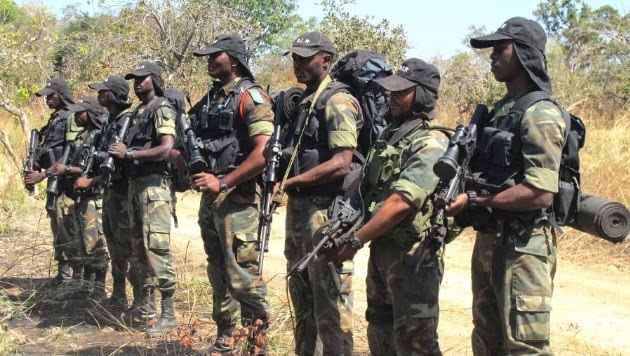Southern Cameroons Crisis: Francophone army soldiers kill nine civilians in Missong
Soldiers killed nine civilians including a baby in one of Cameroon’s conflict-scarred anglophone regions last week in a “misunderstanding”, the defence ministry said on Tuesday.
Four troops were searching for a missing colleague on June 1 when they encountered “a group of frenzied villagers”, the ministry said in a statement.
They opened fire, killing four women, four men and an 18-month-old girl and slightly wounding a 12-month-old baby, it said.
The incident took place in Missong in the Northwest Region, it said.
The statement, in an exceptionally swift condemnation, described their action as “inappropriate, ill-suited for the circumstances and manifestly disproportionate” and said the troops had been detained pending the outcome of an investigation.
The Northwest and neighbouring Southwest Region are home to most of the anglophone minority in majority French-speaking Cameroon.
After years of chafing at perceived discrimination, anglophone militants declared an independent state in the two regions in 2017, triggering a crackdown by the authorities.
The spiral of fighting has claimed more than 6,000 lives and prompted more than a million people to flee their homes, according to the International Crisis Group (ICG) think tank.
Separatists have targeted police, soldiers, officials and schools, which they deem to be symbols of the state, often carrying out kidnappings.
The armed forces have also been accused of abuses — charges that the Cameroonian authorities have in the past been quick to dismiss.
In February 2020, at least 23 people were killed in a military raid on the village of Ngarbuh in the Northwest Region, 15 of whom were children, according to UN figures.
The army initially said they had died when a fuel tank exploded during a firefight between troops and separatists.
But as an international outcry developed, the authorities said the civilians had been killed by “uncontrolled” soldiers who were supported by militiamen.
Three soldiers were then prosecuted for murder and pleaded not guilty, but the verdict has still to be announced more than two years later.
In February 2021, Human Rights Watch (HRW) said troops had raped at least 20 women and killed a man in a raid on the village of Ebam in the Southwest Region — an accusation that the defence ministry said was “undocumented”.
In its statement on Tuesday, the defence ministry said it “deeply regrets this grave and unfortunate incident and expresses its deepest condolences to the families of the victims”.
“The inquiry that was immediately opened by the local administrative and judicial authorities… will enable full light to be shed and to discern the outlines and responsibilities for this regrettable misunderstanding.”
Ilaria Allegrozzi, a researcher on central Africa at HRW, said the inquiry had to be “credible and independent”.
Colonial legacy
The presence of the anglophone regions derives from the colonial era.
The former German possession of Cameroon was partitioned after World War I between Britain and France.
In 1961, part of the British territory, the Southern Cameroons, joined Cameroon after it gained independence from France, becoming the Northwest and Southwest regions.
The separatists’ entity, called the Federal Republic of Ambazonia, has no international recognition.
Cameroon’s 89-year-old President Paul Biya, who has ruled the country with an iron fist for four decades, refused demands for a federal structure as anglophone agitation mounted prior to 2017.
After the campaign became violent, Biya organised a national forum in 2019 which led to the state granting more autonomy to the two regions, but not in key areas of governance.
Source: AFP





